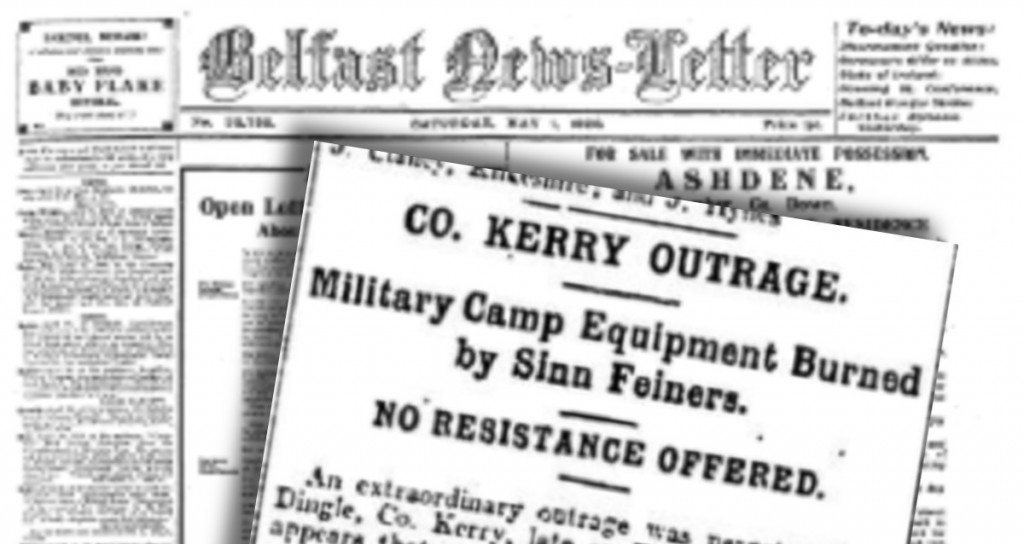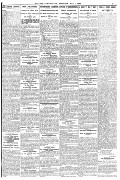 May 1920 would display the many ways in which the Irish War of Independence would be fought. Perhaps in greater number than before - intimidation, attacks and outrages were committed on the general population as the IRA’s war extended beyond the RIC barrack or the military ambush. In this month’s blog posts we focus on how all sections of society were affected by the ongoing violence and terror.
May 1920 would display the many ways in which the Irish War of Independence would be fought. Perhaps in greater number than before - intimidation, attacks and outrages were committed on the general population as the IRA’s war extended beyond the RIC barrack or the military ambush. In this month’s blog posts we focus on how all sections of society were affected by the ongoing violence and terror.
May 1920 began with a daring and successful raid on military equipment in county Kerry.
When military equipment arrived in Kerry for the soon to be established camp near Dingle the IRA in the county sent out a clear warning of their intentions and indeed competence. On the night of 1 May the IRA arrived at Tralee railway station and took all of the tents and bedding which had been sent in advance. The equipment was left in trucks at the station, awaiting the arrival of the military on the following morning when the IRA seized the opportunity to destroy it. A large body of men arrived during the night and as no guard had been left to look after the consignment, they took all of the equipment out onto the road and burned it in a large fire. Displaying how the IRA were growing in confidence and the daringness of its volunteers, the fire was lit within 100 yards of the RIC barracks and close to the coastguard station. Later that month the military sought compensation before the Tralee Quarter Sessions for the loss of the equipment but got little sympathy from the court which were overseen by Judge Cusack. The judge was unimpressed and claimed that someone had ‘blundered’ by not sending an escort with the equipment. Even in a time of peace, Cusack maintained, this was the right thing to do. Giving evidence, Michael Slattery, the night watchman at the railway station claimed that he had been held up by an armed gang and that there was little that he could do to prevent the burning of the equipment. Providing compensation for the railway company, Cusack struck out the military claim to be dealt with at the next sessions, claiming that ‘those military men don’t know where they are after a time’.
Download Source: Belfast Newsletter 1738-1938, 01.05.1920, page 5; See also Kerry News 1894-1941, Friday, May 28, 1920; Page: 3

 May 1920 would display the many ways in which the Irish War of Independence would be fought. Perhaps in greater number than before - intimidation, attacks and outrages were committed on the general population as the IRA’s war extended beyond the RIC barrack or the military ambush. In this month’s blog posts we focus on how all sections of society were affected by the ongoing violence and terror.
May 1920 would display the many ways in which the Irish War of Independence would be fought. Perhaps in greater number than before - intimidation, attacks and outrages were committed on the general population as the IRA’s war extended beyond the RIC barrack or the military ambush. In this month’s blog posts we focus on how all sections of society were affected by the ongoing violence and terror.
